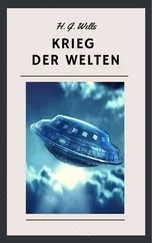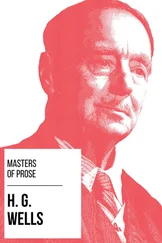She couldn’t remember how she’d gotten here, or how she was supposed to get out. The two soldiers were barreling toward her from one direction, but the other way looked to be a blank hall, with no doors on either side.
The alarm turned on, buzzing and shaking her brain. Her vision instantly went blurry again.
She stopped, her back against the wall, as the soldiers approached. They were running, charging after an unseen enemy, and it was easy for her to reach out one foot and trip the first man. He tumbled to the floor, and the second soldier collided with him, falling in a jumble.
“That was her!” the radio screamed. “She’s right there.”
Aubrey turned and ran back the other direction. Her feet were unsteady beneath her, and she wasn’t running nearly as fast as she could normally.
A door opened ahead of her, and three men stepped out. They were plainly army, but weren’t dressed in the full combat gear of the other soldiers. They looked administrative. Aubrey ran past them without giving them a second look.
She turned another corner. This hall was long, lined with doors on each side. At the far end was a large round disc, but also an “exit” sign.
Aubrey didn’t wait, didn’t think. She was going to get outside where she could find a place to hide. She needed to be back with the thousands of teenagers in the tents and to blend in where she’d be just another face in the crowd.
And then she remembered where she’d seen the giant black disc. They’d been in the guard towers when she’d been designated a Negative. Four towers, four discs, all pointed at the small steel cage.
And now this one was pointed at her.
Aubrey was knocked to her knees by a sudden blast of sound. It hit her like a massive weight—louder than dancing in front of the speakers at the homecoming dance, louder than when she and Nicole had gone to that concert in Salt Lake. This noise seemed to shake her bones, to rattle and bruise every organ in her body, and to sap the energy out of her.
She clapped her hands over her ears, but it didn’t help. She couldn’t move. She couldn’t do anything but try to shield her head with her arms.
Her vision was going, fading into darkness, and a splitting headache made her want to puke.
She reappeared. It was the only thing she could do to relieve her pain. It didn’t help. She was flattened to the floor by a beam of sound.
When it finally stopped, she was huddled on the linoleum, completely blind.
The sound of running boots echoed in the hallway.
DR. EASTMAN’S VOICE CAME OVERa speaker. “We will begin the procedure in thirty seconds.”
Jack wanted to scream for help, but the medics had put a rubber mouth guard between Jack’s teeth and he could hardly make a sound.
“Ten seconds,” Eastman said. His voice was calm, even pleasant.
Jack kicked against his restraints, shook his head in the brace, but nothing was going to work.
“Five, four, three, two—”
Electricity shot through Jack’s body, pulsing with a pain that was both an acute burning and a dull ache, sharply stinging but throbbing slowly and heavily. The pain rested in his joints, and he felt overwhelming nausea, not in his stomach but in his limbs—like if he moved anything he’d throw up. He jammed his eyes shut, clenched his teeth on the mouth guard.
He couldn’t feel his legs or his hands, and his chest heaved as though his lungs were being ripped upward. His ribs were on fire—it felt like they would burn through his flesh.
And suddenly his legs were back with an overpowering prickling, itching sensation as though he were covered in biting ants. He struggled madly against the leather straps, desperate to brush the insects from his legs. He writhed on the table, his back arching against the gurney and his muscles so tense he knew they’d tear.
The electricity now moved to his face and head, needles of pain digging under his teeth and scraping down his ear canal. The ants were on the back of his neck, their sharp teeth burrowing into his skull and spine. Jack tried to scream but the mouth guard felt enormous and oppressive, and he knew it was cutting off his air, pushing down into his throat.
Then the electricity stopped. Pain still crushed in his head and limbs, but the ants were gone and the sharpness faded into a blunt, slow throbbing.
The room was filled with light, bright enough that Jack didn’t dare open his eyes. The door must have opened—he could hear the voices of several men and women. They were all talking too loudly and his brain felt too muddled; he couldn’t figure out what they were talking about.
“All done,” Dr. Eastman said, the loudspeaker thundering as though the volume itself could knock down the cinder-block walls.
As if on cue, there was a tremendous shaking. Jack winced, expecting the ceiling to come crashing down. But the vibration stopped, replaced by an intense combination of body odor, cologne, and shampoo. Jack could just barely stop himself from throwing up.
“So,” Dr. Eastman shouted, no longer on the loudspeaker but in the room. “How do you feel?” His footsteps thumped on the ground like an elephant’s as he moved to the gurney and removed Jack’s mouth guard.
“Can you turn down the lights?” Jack said.
There was more thumping, and then the brilliant flood lights were dimmed. Jack opened his eyes a tiny crack.
“That better?”
Jack nodded as much as the head brace would let him. The lights overhead were completely off, but the room still seemed to glow. He could see through the mirror now: at least ten people sat at computers, and as he watched them he noticed that it was them he could hear talking. “Tell me how you feel,” Eastman said, once again pulling up the folding chair and sitting beside the gurney. There was still so much noise in the room that Eastman was bellowing to be heard above it.
“How do you think?” Jack said. His own words echoed in his head.
“Just tell me,” Eastman said. “The sooner we’re done here the sooner you can go get cleaned up.”
Jack tried to pinpoint any symptoms, but he still felt completely overwhelmed with pain, with noise, with the irritation of the leather restraints, with the rubber taste in his mouth. He couldn’t concentrate.
“I feel like crap,” Jack said.
“Be more specific.”
“My head is killing me.”
“Where does it hurt?” Eastman said. He removed the brace around Jack’s neck.
“All over,” Jack said. “My head and face mostly. And I think I’m going to be sick.”
“That’s fine,” Eastman said with a smile. “We have a mop.”
“I don’t have the virus,” Jack said, closing his eyes again. “I’m hurting because you almost electrocuted me. But I don’t feel like I can do anything else.”
“Oh, you’ve got it,” Eastman said. “They’re tracking it in the other room. You’re manifesting all right.”
“Can you turn off the microphone?” Jack said. “And stop shouting? Seriously, my head is killing me.”
“What do you mean?”
“What do you think I mean?” Jack snapped. “You just fried my brain and now you’re yelling at me. Can’t we just have it a little quieter?”
Eastman frowned and then stepped out the door. Jack didn’t see him go into the room behind the mirror, and no one turned off the loudspeaker. Jack could hear the people inside talking about him—something about his brain activity.
Dr. Eastman returned to Jack’s gurney with a book. He opened it, seemingly at random, and held it up.
“Can you read this?” Eastman said. “Army Field Manual. Just start at the top.”
Jack looked at the page for a moment and then began reading. His mouth felt dry and swollen. “An emphasis on asymmetric means to offset United States military capability has emerged as a significant trend among potential threats and become an integral part of—”
Читать дальше












